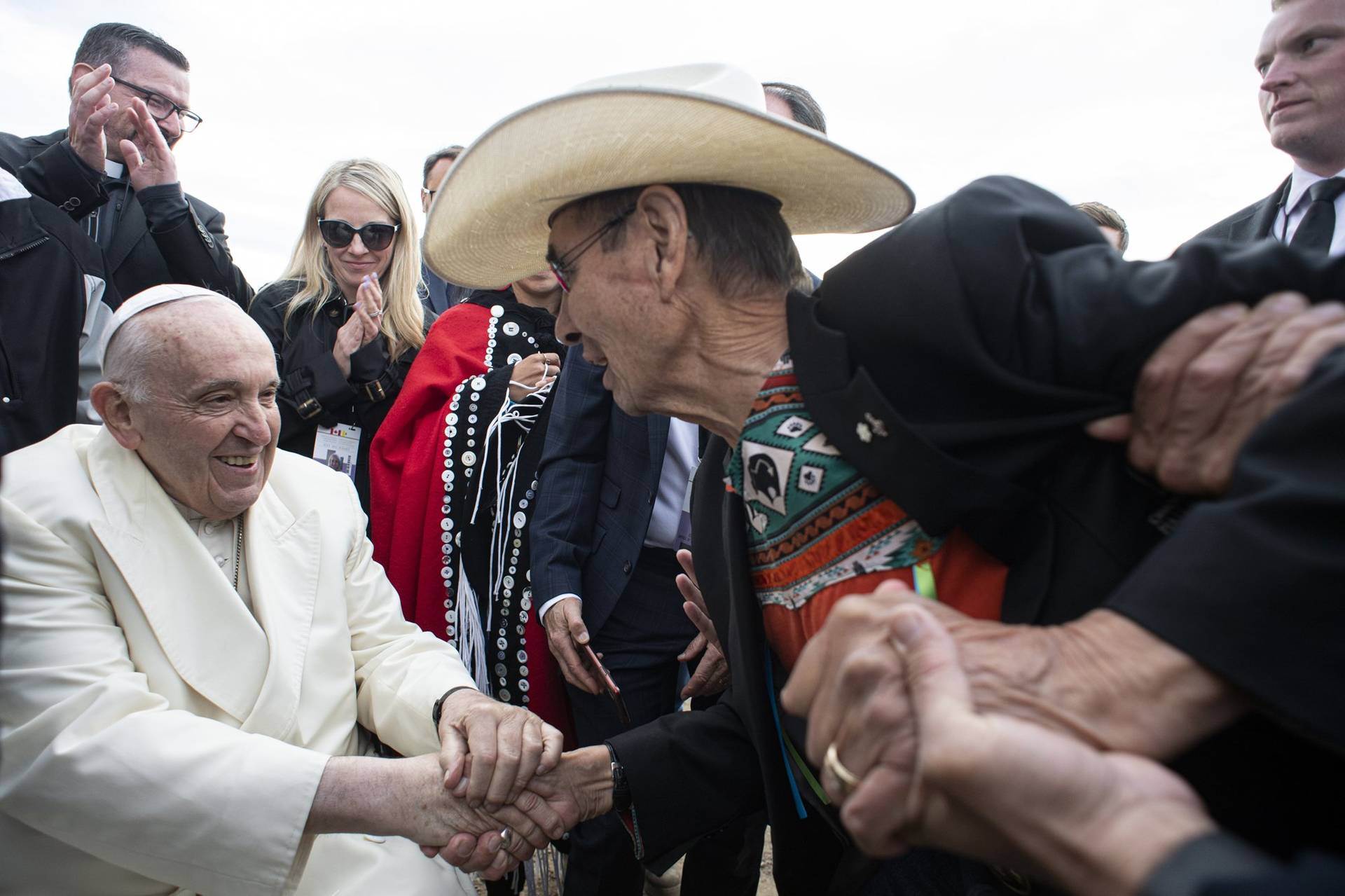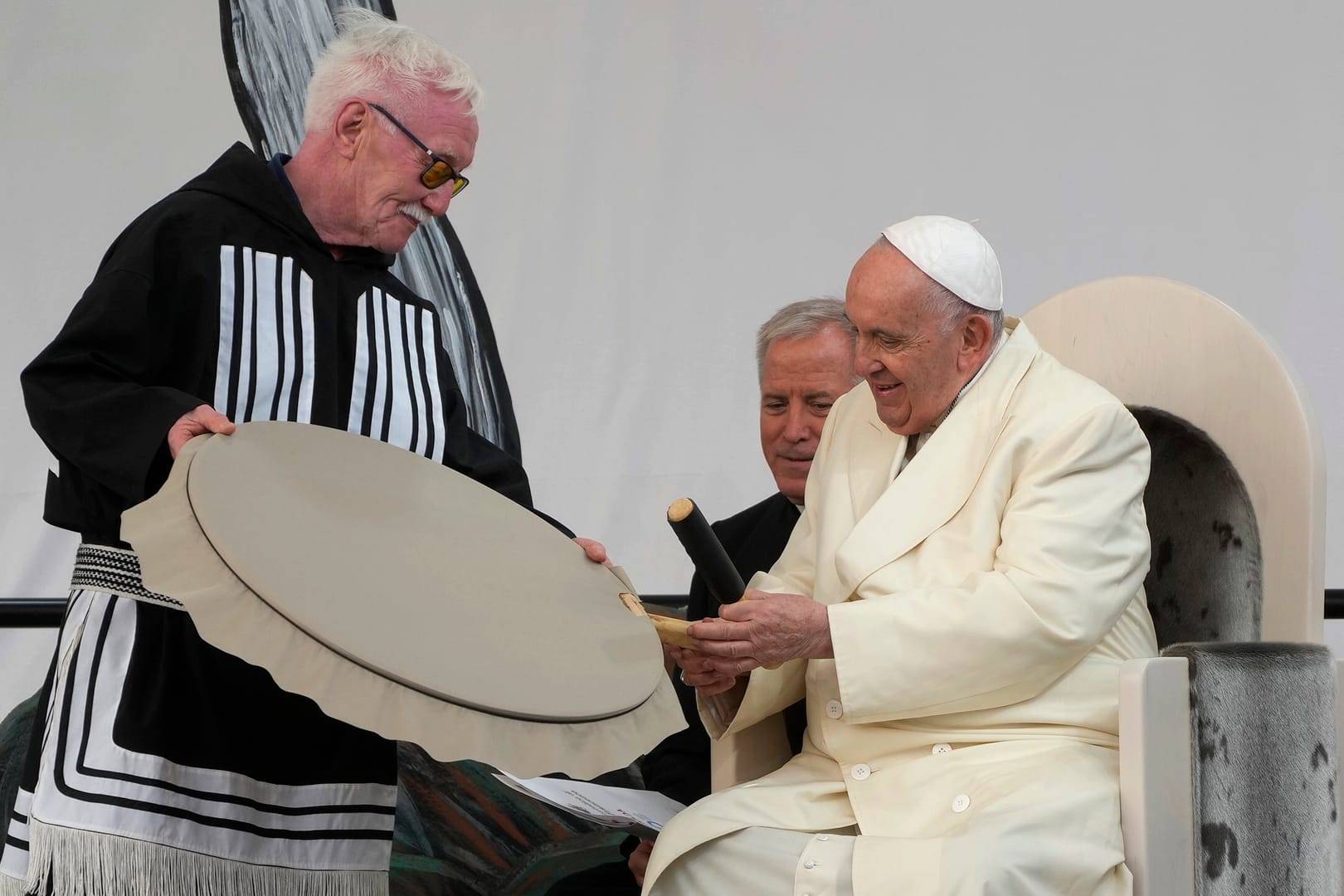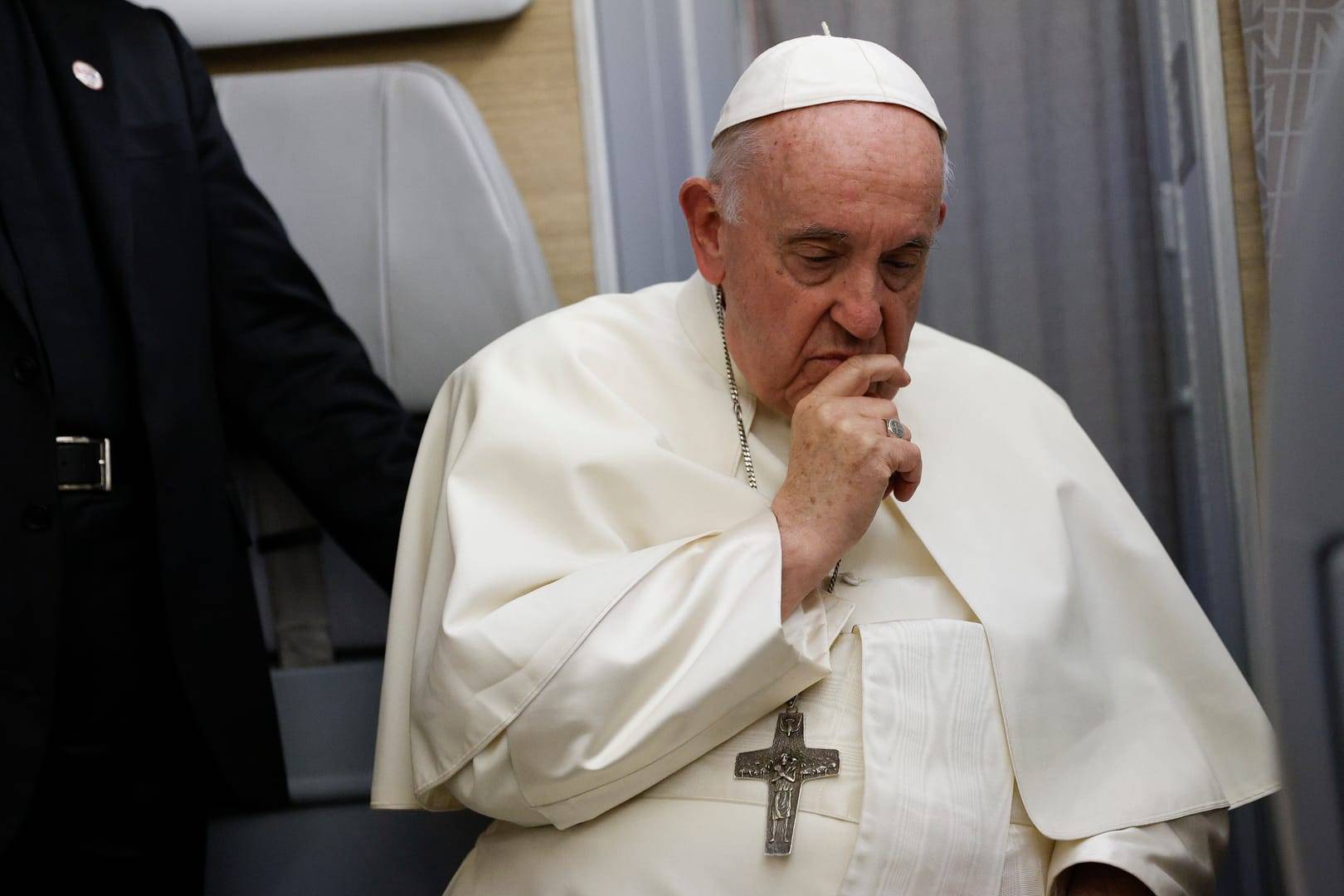ROME – Pope Francis kicked off his second full day in Canada Tuesday, with a sermon on the important role the elderly and grandparents have in preserving history and passing on both wisdom and faith to new generations.
“In order to accept who we really are, and how precious we are, we need to accept as part of ourselves the men and women from whom we are descended. They did not simply think about themselves, but passed on to us the treasure of life,” the pope said in his July 26 homily.
Grandparents, he said, are the ones “who loved us unconditionally, without expecting anything back,” and it is thanks to them that “we received a caress from the history that preceded us: we learned that goodness, tender love and wisdom are the solid roots of humanity.”
Pope Francis delivered his homily during a Mass attended by thousands at Commonwealth Stadium in Edmonton, Alberta, marking the Feast of St. Anne, the grandmother of Jesus and a highly venerated figure among Canadian Catholics, particularly within Indigenous communities.
Later in the day the pope is expected to lead a prayer service at Lac Ste. Anne, one of North America’s most popular pilgrimage sites, which is especially dear to Indigenous Christians and is considered to be a place of healing by the pilgrims who journey there every year.
The first mission at the site was established by Canadian priest Father Jean-Baptiste Thibault in 1842. Over the years, the size of pilgrimages to Lac Ste. Anne grew, and now it is customary for pilgrims to visit the site the week of St. Anne’s July 26 feast.
Pope Francis’s decision to visit the shrine and his homily highlighting the role of elderly and grandparents in life and society is especially significant for Indigenous communities, who hold the elderly in high regard, and view the role of grandmother as especially important.
In his homily Tuesday, the pope said grandparents are the ones who teach “that love is never forced; it never deprives others of their interior freedom.”
“May we learn never to pressure the consciences of others, never to restrict the freedom of those around us, and above all, never to fail in loving and respecting those who preceded us and are entrusted to our care. For they are a precious treasure that preserves a history greater than themselves,” he said.
Grandparents, he said, ought to be a source of consolation in moments of discouragement and of wisdom amid difficulties.
He questioned attendees on what role the elderly and grandparents have in their lives, insisting that “in the fog of forgetfulness that overshadows our turbulent times, it is essential to cultivate our roots, to pray for and with our forebears, to dedicate time to remember and guard their legacy.”
“This is how a family tree grows; this is how the future is built,” he said, saying grandparents also hold an invaluable role not just in preserving the past, but in writing the future.
“The grandparents who went before, the elderly who had dreams and hopes for us, and made great sacrifices for us, ask us an essential question: what kind of a society do you want to build? … A society founded on personal profit or on fraternity? A world at war or a world at peace? A devastated creation or a home that continues to be welcoming?” the pope said.
Francis spoke of the importance of tradition, telling Mass-goers to be cautious, “lest we fall into a caricature of tradition, which is not vertical – from roots to fruits – but horizontal – forwards and backwards.”
“Tradition conceived in this way only leads us to a kind of backwards culture, a refuge of self-centeredness, which simply pigeonholes the present, trapping it within the mentality that says, ‘We’ve always done it this way,’” he said.
Just as the prophets in scripture prepared for the arrival of Jesus, “those who preceded us have passed on to us a passion, a strength and a yearning, a flame that it is up to us to reignite,” the pope said.
He asked Saints Joachim and Anne, the grandparents of Jesus, to help believers “to cherish the history that gave us life, and, for our part, to build a life-giving history.”
Pope Francis stressed that there is “a spiritual duty” to honor one’s elders and grandparents, and to treasure their presence as an opportunity “to create a better future” in which the elderly “are not cast aside because, from a practical standpoint, they are no longer useful.”
This future, he said, ought to be one “that does not judge the value of people simply by what they can produce” and which is not indifferent “to the need of the aged to be cared for and listened to.”
It must be a future in which “the history of violence and marginalization suffered by our Indigenous brothers and sisters is never repeated,” he said, insisting that this future can be achieved “if, with God’s help, we do not sever the bond that joins us with those who have gone before us, and if we foster dialogue with those who will come after us.”
“Young and old, grandparents and grandchildren, all together. Let us move forward together, and together, let us dream,” he said.
Follow Elise Ann Allen on Twitter: @eliseannallen














